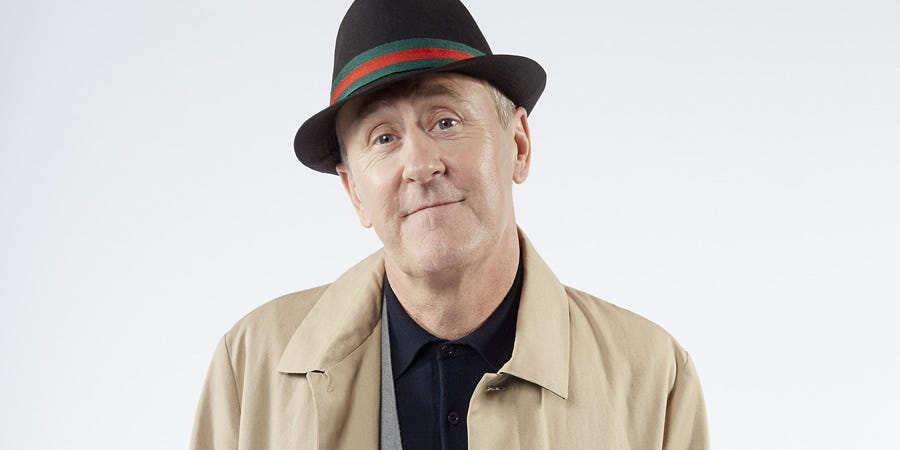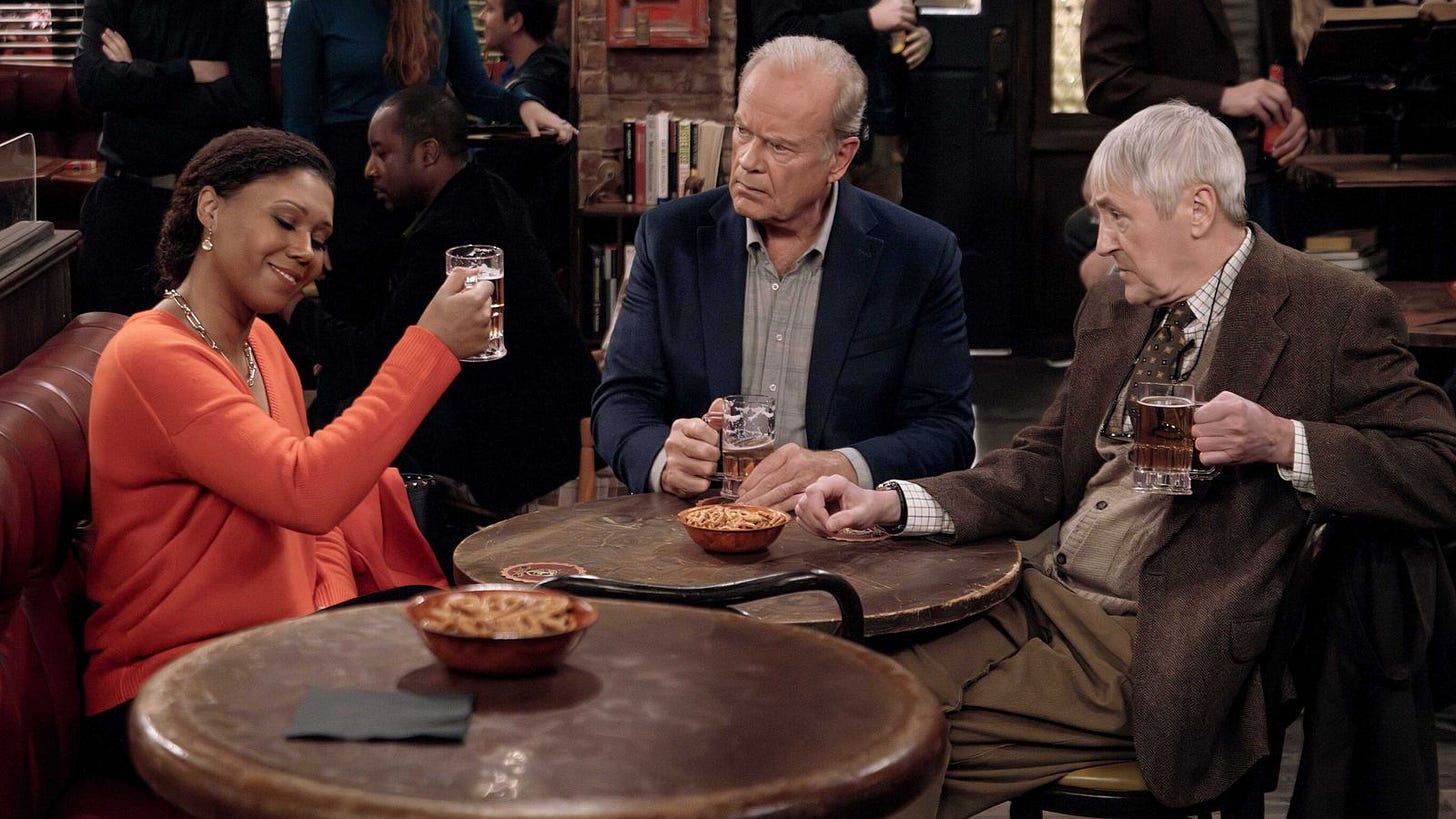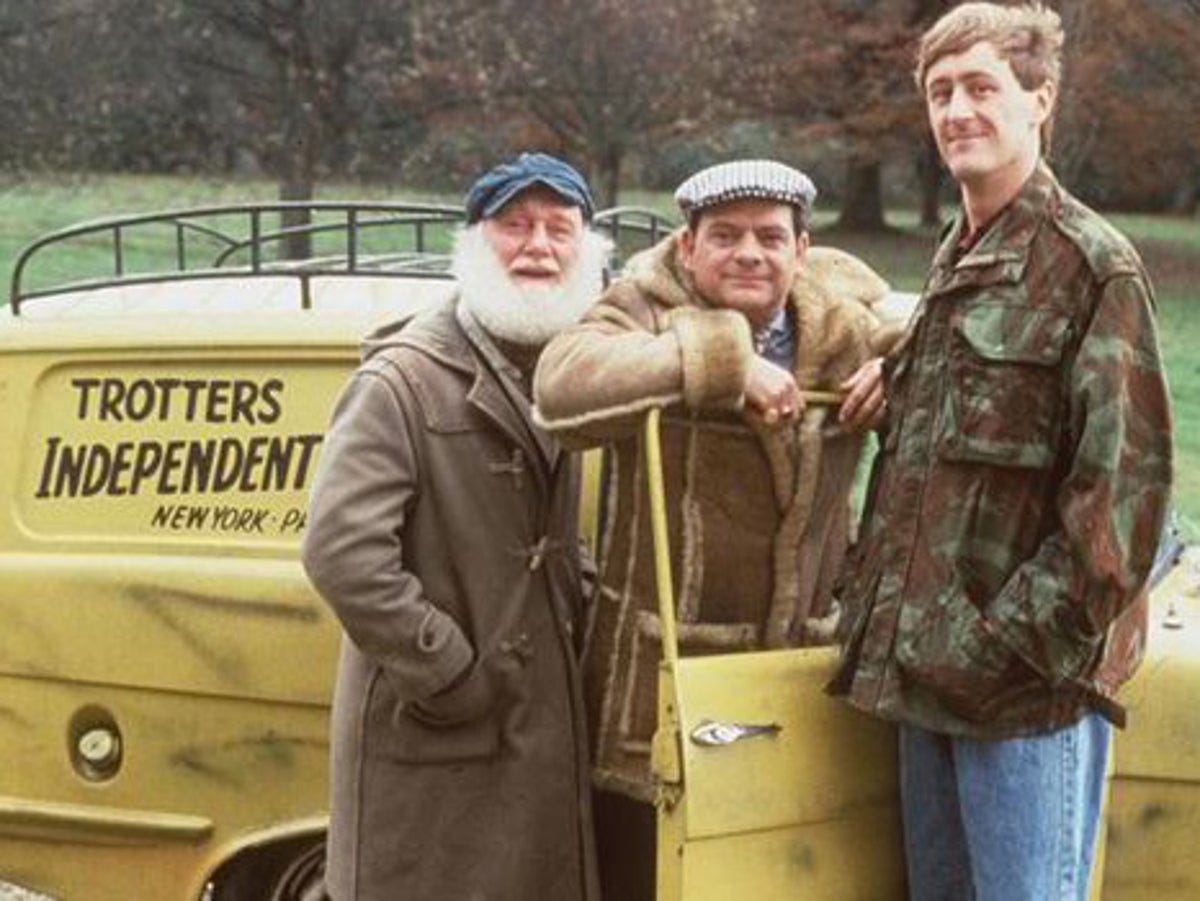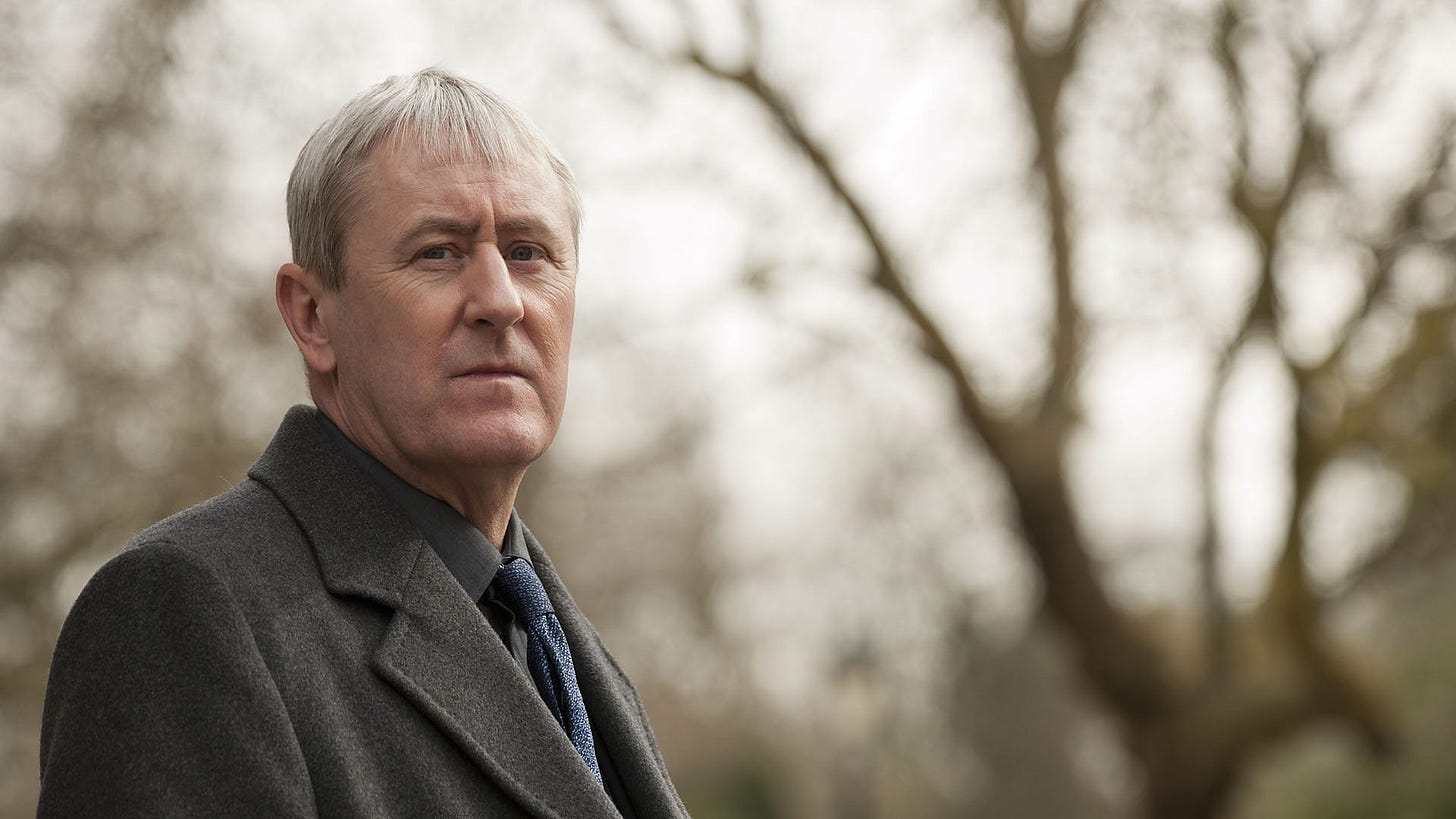Nicholas Lyndhurst
Say what?
I owe my introduction to acting to the fact that, as a child, I was bad at football.
Not just bad: totally, awesomely, gloriously pathetic. I was the youngest in my class with a physique to match. On nodding acquaintance with my peers’ shoulders and prime height for my relationship with any sport to be filed under ‘prey’.
Growing up in Belgium in the early 90s, the only encouraged activities for children were football and smoking. In a bid to find me something to do that didn’t involve hiding for ninety minutes in the wet apocalypse of mud, wind and tears known sarcastically as ‘goal’, my parents dropped me off at a youth theatre group. There, I was dry and not being actively attacked and this was a marked improvement. So I spent a few years continuing to be dry and not actively attacked on an amateur basis and eventually decided that I would like to be dry and not actively attacked professionally. All of which I have found very satisfactory. Even better, I have met other people who like to spend their time being dry and not actively attacked and we have all bonded over our improved lives.
In my experience, the path we take to becoming actors runs perpendicular to the popular perception of it. The myth is of an egomaniac drama diva starlet. The truth is more prosaically to do with community. Whether for you it was a theatre ensemble, an improv team, a film class, an audio drama studio, or running screaming from a black and white spherical missile while the ground ate your trainers, that first introduction to the job tends to focus on building and working with a team.
We like working as a team.
Not just like: it’s foundational to the work. The final product begins with the building and strengthening of connection. So it’s imperative that we do it effectively from the start.
Communities are built on many lovely principles: respect, honesty, kindness… but there’s one element, a really difficult one to master, that is particularly relevant to acting. It is, in its way, the main bonding agent.
Now excuse me while I pivot hard and talk about Nicholas Lyndhurst.
A Watchable Actor
I’ve been watching the new season of Frasier. If you’re new to the party, Frasier, a show that span off from Cheers in 1993 is back with a new spin-off called: Frasier.
In the new show, we pick up with Frasier twenty years later, now recently retired and rolling in money from a stint as a TV psychologist, along with a new cast of characters as he comes back to Boston. Lyndhurst takes the David Hyde Pierce role of Frasier’s equal and foil, this time as an old Oxford chum who teaches Psychology at Harvard called Alan.
When not actively the centre of the action, Lyndhurst slumps donnishly in a variety of chairs, his eyes fixed ahead, allowing the currents of life to happen around him until something stirs him to speak - generally alcohol.
I am having a wonderful time watching him.
Have a look at this scene from the pilot. Alan has been recruited by his department head (the brilliant Toks Olagundoye) to convince Frasier to teach at Harvard. Alan, while game to come along, is not very interested in Frasier teaching at Harvard. His objective is to open a particular bottle of whisky.
Keep an eye on Lyndhurst and Olagundoye as they pop in and out of the action. They have very little in the way of plot-moving dialogue, however, our knowledge of their separate objectives coupled with how they pay attention tells a different story to the main events. I recommend watching this clip once as normal and then again with the sound off.
(If you’re in a country where this video is not loading for you, I’m starting at 16:49.)
Frasier | Series Premiere | Full Episode | Paramount+
If you’ve come to him later in life, Nicholas Lyndhurst was a child actor who came to fame as an adult in what became the most popular British sitcom of the 80s and 90s, Only Fools and Horses. He plays the younger of two brothers, the leads, and his role is largely to be disappointed by things. To give you some idea of its popularity, the 1996 Christmas special was watched live by 21 million people. The UK population was 58 million.
In this scene, he has gone to a meeting of his tenants’ association.
Once again, try it with sound on and sound off. Watch his eyes. See how new information lands.
My Name is Rodney! | Only Fools and Horses | BBC Comedy Greats
Finally, here he is not in a sitcom but instead solving crimes. New Tricks was a BBC procedural that followed a cold cases squad; Lyndhurst joined the show’s later years.
One thing I like about this clip is that, it being a procedural chase scene, the objective is very clear. Because of this, we can easily track how the cast register each sequential obstacle.
BBC One - New Tricks, Series 12, Last Man Standing, Part Two, Gerry and Danny Go on the Run
Let’s get back to that bonding agent.
Active Lyndhursting
Do you have a favourite actor who doesn’t seem to get much acclaim? Someone who pops up in things all the time and is always reliable. Someone who makes you think: ‘oh good’ when they’re the guest?
Chances are they’re a really good listener.
Listening while acting is harder to do than listening while not. If you think of yourself as a satellite dish, you are switching between broadcast and receive modes. But when the pressure’s on, we can get stuck in broadcast. So, as actors, we practice.
It’s why we play drama games and warmups before we go on. I always find it sad when companies don’t, when there’s no time or they think they’re beyond all that silliness. The building of a team relies on trusting each other enough to switch out of broadcast and letting yourself receive. Getting good at listening begins with Zip Zap Boing1 or Sound Ball or whatever and culminates in performance. When we get nervous, it’s the first thing to go. We work and work and work at it because, well…
Sometimes, the spirit is willing but there’s a camera pointed at your face, and the director has fifty notes, and you just got the script yesterday, and you’re tired because you didn’t want to miss your alarm for the early get up and ended up not sleeping at all, and you’re worrying that your tiredness is going to hamper your best work, and you’re worried you can’t wipe your nose because then you’ll ruin the makeup, and, of course, you therefore need to wipe your nose, and you’ve been sat for three hours trying to be quiet, and it’s your scene now and all the pressure is on you and you’ve got to do it exactly like in the audition but you can’t quite get the intonation and you can see the time ticking away, threatening to run over and cost everyone money and there are dozens of people waiting for you and it’s all taking too long and it feels like it’s all because of YOU.
How on earth do you listen to the other actor when all of that is filling your head? It’s so much easier to just focus on what you have to say and make sure you get it out at the right time.
But if you allow yourself to listen, to really register what the other person is saying and what it means to you, a new story will cross over your face without you having to do any work for it.
You only get to react in the moment by paying attention, by not allowing yourself to fill your head with the most interesting way of saying your upcoming line. Because whatever it is, how you react through listening will be better than how you’re imagining the line. If it is true that acting is reacting, then what excites us as viewers is reactions. It’s the stock currency of gifs.
So how do we work it?
Three things to practice listening.
Eventually, we do get used to all the extra things going on, or at least more comfortable. But to get to eventually, we need to get through now. That means practice and that means finding opportunities to perform with other actors. If you’re stuck, writers groups can be useful. I used to read regularly for a comedy writing group in London and it was one of the best workouts.
That said, this is one of those ‘you’ve got to fail first’ things. Going in expecting to be perfect at tuning out all the noise is a great way to set up a month of hiding in bed. Trying is more important than succeeding, and you will be trying while taking paid work. That’s normal. Perfectionism is a killer.
I like to play a game that makes me fun at parties to figure out who’s listening to their scene partner and who’s worried about getting their lines right when I watch TV or films. If you want to join, can I recommend the 2015 Spielberg film Bridge of Spies? It’s two hours twenty two minutes of Tom Hanks and Mark Rylance in Cold War Berlin aggressively listening to each other. Glorious.
News
This newsletter’s been going for a year now and there are 90 of you! That’s the seat capacity of a small end-on or large black box theatre. Wouldn’t it be nice if we were all hanging out in one of those? If you’re getting something out of it, why not say Hi in the comments.
I am trying to figure out what a paid subscriber level could look like without a) compromising the main letter or b) killing me. If you have ideas, let me know.
In personal news, I had the pleasure of joining the cast of Marvel Move this month. You can hear me annoying Captain America as Marseille’s number 1 Marvel villain, Batroc the Leaper in their Thanksgiving run: Captain America: Turkey Trot.
For American readers, zip zap zop.








Please don’t worry about what will make us happy! Just post!! And I’m happy to subscribe!!
Hello!